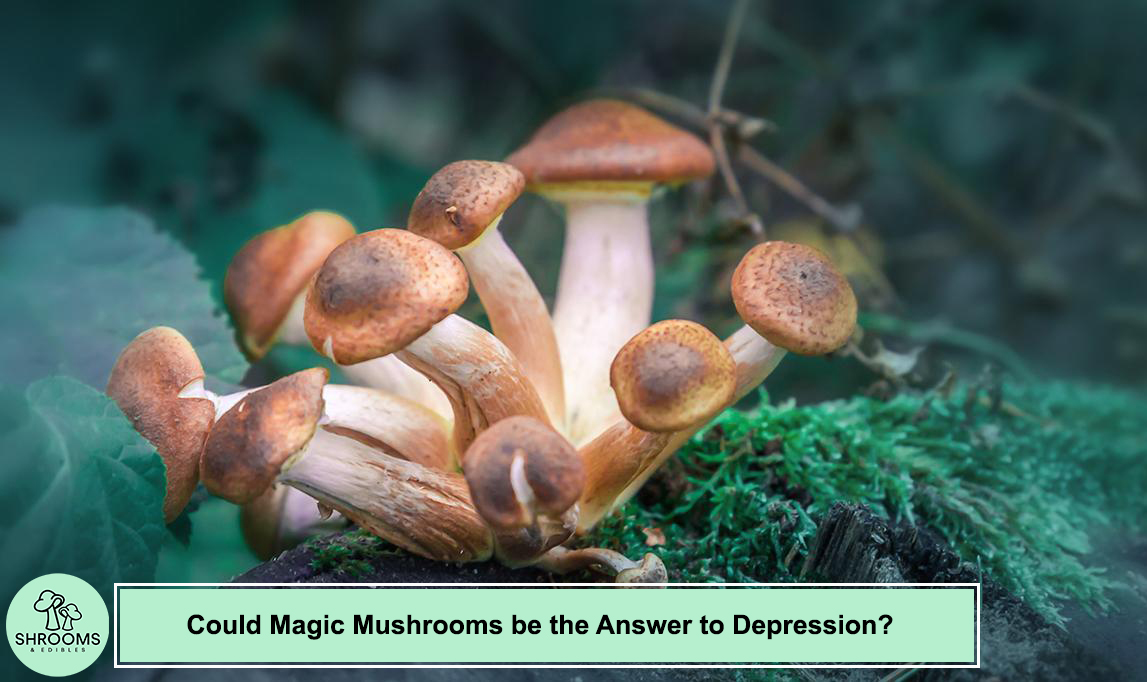- HIGHEST QUALITY SHROOMS & EDIBLES FOR THE LOWEST PRICE | FREE SAME-DAY SHIPPING ON ALL ORDERS OVER $130

Psychedelic drug psilocybin – found in “magic mushrooms” behaved just like an antidepressant widely used in curing the symptoms of major depression and exceeded the usual medication prescription in a range of secondary measures, the conclusions of a small-scale second phase of the study.
In a 6-week trial including 59 patients with modest-to-serious depression, there was no big difference between the effect of SSRI (selective serotonin reuptake inhibitor) escitalopram and that of high-dose psilocybin, sold with Lexapro brand name.
Patients in the group receiving psilocybin showed a much faster improvement in the main measure of depression than those receiving escitalopram, but this gap narrowed in the test arc until it was no longer statistically significant.
It is clear that escitalopram therapy has a slower onset of antidepressants than psilocybin. And psilocybin was constantly superior in adjuvant results, but it was no different from the primary ones, said Robin Carhart-Harris the study lead, author, Ph.D., head of The Center for Psychedelic Research at Imperial College London told reporters at a news conference.
Investigators found that psilocybin assisted escitalopram in several secondary results, including feelings of well-being, the ability to express emotions, and social functioning.
Still, the team warned that they could not draw conclusions from these secondary measures because larger and longer trials are required.
But the secondary ones were very suggestive about the potential superiority of psilocybin therapy to treat not just depression, but these ancillary symptoms.
59 patients were assigned randomly to take psilocybin and 29 others to take escitalopram. Each procedure was repeated in both groups.
At the second “dosing days” scheduled during the 6-week trial, all patients took an oral dose of psilocybin. However, the escitalopram group took 1 milligram, versus 25 milligrams for the psilocybin group.
And the reason why we did it is that we can standardize the expectation. We tell everyone, you will get psilocybin. Only the dose can change.
He acknowledged that most patients – though not all – were able to determine which group they were in on the first day of dosing based on the effects of the medication.
Following the oral dose, patients would spend 6 hours staying on a bed, with a curated selection of music, surrounded by pillows, and supported by two “guides” or therapists. The guides were ready to support patients through their psychedelic experience but did not talk or otherwise intervene.
The next day, patients participated in a session with their two therapists to talk about their experiences.
During dosing days, patients in the high-dose psilocybin group would receive daily capsules containing a placebo. The low-dose group took an escitalopram course.
The incidence of side effects was the same in each group. None was serious.
The study’s lead investigator, David Nutt, DM, from Imperial College London, said many patients in the psilocybin group reported extensive knowledge during dosing days.
Very often, for the first time, people can really understand why they are depressed.
The word psychedelic, coined in 1957 by psychiatrist Humphry Osmond, is derived from the Greek words “psyche”, meaning “soul” or “mind”, and “delos”, meaning “discover”.